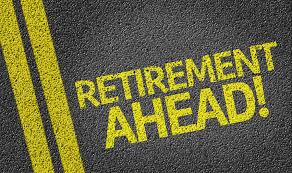One of the most memorable lines from one of my favorite movies, The Sound of Music, is, “When the Lord closes a door, somewhere he opens a window.” I’ve often felt that the redefinition of retirement happening nowadays is encapsulated by this thought.
In the past, many viewed retirement as an end – end of your working career, near the end of your life. What they may have failed to realize is that endings can lead to new beginnings; more and more this is how people view retirement today.
With that in mind, I’m sharing the following article which provides 3 key points to help frame this transition, when the closing door of your full-time working life opens a window of opportunity into a future of new experiences.
——————————————–
We spend decades dreaming of the day when life won’t be dictated by alarm clocks, commute times, meeting schedules and office politics. Then reality sets in: Retirement can be kind of a drag. And there may be 20-plus years of it ahead of you.
While traditional retirement planning covers financial essentials — expected returns, inflation, withdrawal rates, portfolio rebalancing, tax planning — most plans won’t prepare you for the emotional challenges of post-work life.
You may dread the drudgery of employment, but there’s something to be said for the structure it provides. Work is where many people derive their sense of purpose. It can also provide framework for your days (projects, meetings, deadlines) and a sense of community (thanks to water coolers, slow elevators and happy hours).
Then one day you wake up and it’s all gone.
Upon retirement, people may feel a little adrift at sea, and this can happen to people regardless of means. A good predictor of retirement dissatisfaction is if a person views retirement as an escape hatch. As a result, it’s better to be retiring to something and not from something. Being intentional and having a game plan in place helps with the mental transition into retirement.
Here are three steps you can take to help protect your retirement from being tarnished by dissatisfaction:
Find a reason to set your alarm. After you’ve taken those cruises, spoiled the grandkids, organized the sock drawer and descaled the coffee maker, what’s going to inspire you to get out of bed each morning in the decades ahead?
People who have pursuits outside of their professional life tend to fare better in retirement. If you’re not interested in taking up a new hobby, consider ways to use the professional expertise you’ve cultivated over the years. It’s even better for the psyche to apply your talents to serve a cause that you care about.
Don’t wait until you retire to explore new pursuits. Test-drive volunteer opportunities in your community before retirement to plant seeds for future endeavors.
Pretend you’re still living off a paycheck. The transition from building savings to drawing from savings can be stressful. Instead of receiving a regular paycheck, you’re sitting on one giant paycheck — a pile of money you’ve amassed by saving diligently in your 401(k)s and IRAs — that’s supposed to sustain you for the rest of your life. Psychologically it feels scary, even though you logically know that you’ve saved so you can live off your investments.
Planning can help you transition to spend-down mode. Start by creating a post-retirement budget around anticipated expenses (including quarterly taxes, health care and potential emergencies). Also think about which accounts you’ll draw from (Roth or traditional IRA, taxable brokerage account, cash savings?) in order to minimize the tax hit when you start taking income from your investments.
Simulating a paycheck-based cash-flow system in retirement by setting up monthly transfers from an IRA (or other retirement account) into a checking account helps with the transition. This also helps prevent a retirement rookie error: blowing through your cash too quickly during the initial stages of retirement.
Discuss the transition with loved ones. Retirement can be a major relationship disruptor. All that “me time” you and your partner had when one or both of you were at work is now potentially “we time.”
It’s important to have a series of conversations with your spouse about whether you will retire at the same time. Retirement can be especially stressful if one partner retires before the other.
Expect that there will be an adjustment period, and perhaps spats over household duties (“You were home all day; why didn’t you mow the lawn?”) and scheduling conflicts (“I can’t take that week off work for a road trip”).
But if you’re prepared to be flexible, respectful and understanding of the other person’s perspective, you can achieve peaceful coexistence in retirement.
